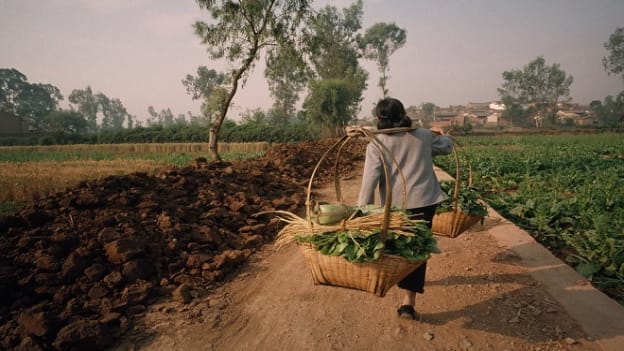How to improve the talent ratio in favour of women in the Indian agri and allied sector?

Despite making a strong mark in several different fields, there is a severe shortage of female talent at corporate level in agriculture and allied industries. The reasons for this are manifold and include lack of last mile facilities, security and safety concerns, existing gender bias in the ecosystem, sexual harassment and inability of the society to accept women in pivotal decision-making roles.
How many women are making a name and a strong career in the Indian agri sector, beyond just the farmlands and in the supply chains, fertilizers and other affiliated industries? That is, beyond the Papammal, Aparna Rajagopal, Rahibai Soma Popere, Kamala Pujhari on the farmlands? Beyond dynamic women like Sakina Rajkotwala and Gita Rajamani who have veered off the more lucrative sectors and created agri start-ups, not many women foray into agribusinesses for a career path.
The need of the hour
With an obvious tilt in the favor of men across all facets of the sector, women either leave the sector in search of more lucrative career options or worse, even those with an education in agriculture or its affiliated sectors, never enter into the field.
There is a clarion call to make the Indian agri and allied sector not only more inclusive for them as an industry, but to also make it a platform to attract, groom, and hone more women into pivotal roles.
Women should begin to hold down equal if not higher positions in affiliate industries – agricultural input suppliers, wholesalers & distributors, retailers, agro-marketing, fertilizers & pesticides, machinery, livestock, input materials, supply chains, logistics, and more. This could be by identifying and grooming women talent right from the graduate or post-graduate level in agricultural colleges by offering scholarships/grants. Or it could be by building a long-term pipeline of talent procurement with various women groups, or creating summits and networking events, for women in agriculture to be heard and represented better.
In order to address this, organizations need to address the challenges identified on a war footing. An easy way to do that is to learn from best practices in the corporate ecosystem and find a good fit for agri and allied industries.
Overcoming challenges
The first order of business may well be to create better facilities and infrastructure across the country, especially the last mile. Companies can do that by first focusing on locations that are a priority for them. There is also potential to explore public private partnerships with the government in boosting infrastructure across locations.
In addition to this, the need of the hour is to address the gender biases in the ecosystem and the societal roadblocks. This may need to be approached in a multitude of ways. Within their own employees and sphere of influence, companies can undertake counseling sessions that can help people look beyond gender at the workplace. In addition to this, there is a need to address this at the family unit level, where partnering the government and education system is required. This is not going to be an overnight change but will comprise small steps, that need to be taken over the long term.
The questions of security and sexual harrasment will also, to a large extent, be addressed by creating awareness and putting supportive practices in place at company level and in the broader ecosystem.
There are many good initiatives that different companies are already undertaking. We have our Women Initiative Network (WIN) to establish a 50:50 gender ratio in the next few years. In addition to this, we have also launched a multi-year science leaders scholarship program with a 50% allocation to women to attract more female talent to the field. Such initiatives now need to pick up momentum. Mentoring and networking forums, scholarships, student loans, sops by the government and a better backend support system where families encourage and motivate women can go a long way towards this effort.
Way forward
While the role of women at the grassroots level is improving as we speak, it is high time that the top rung of the management also saw more women leaders at the helm in agriculture and agribusinesses. It is time for women to step up and ask for equal opportunities and leadership roles and it is definitely time for organizations across the affiliate sectors to offer them that.
Soon, we need to be able to take names such as Gurdev Kaur Deol and Kavya Chandra in the same breath and with the same awe that we take names such as Indra Nooyi, Debjani Ghosh, Roshni Nadar, and others.















